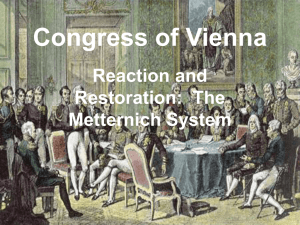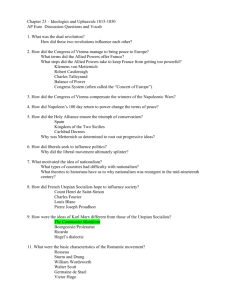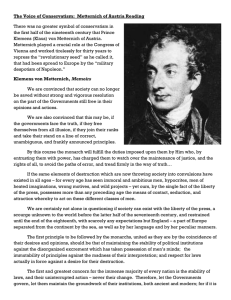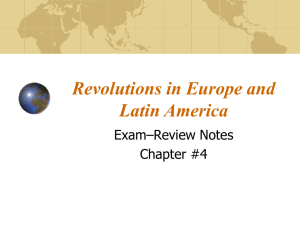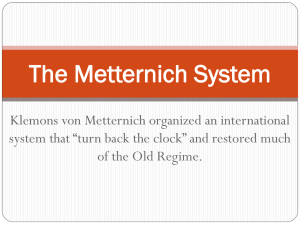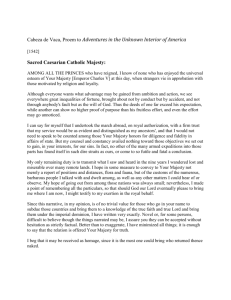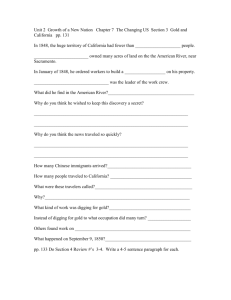Chapter 23-Metternich on the 1848 Revolutions Primary Reading
advertisement
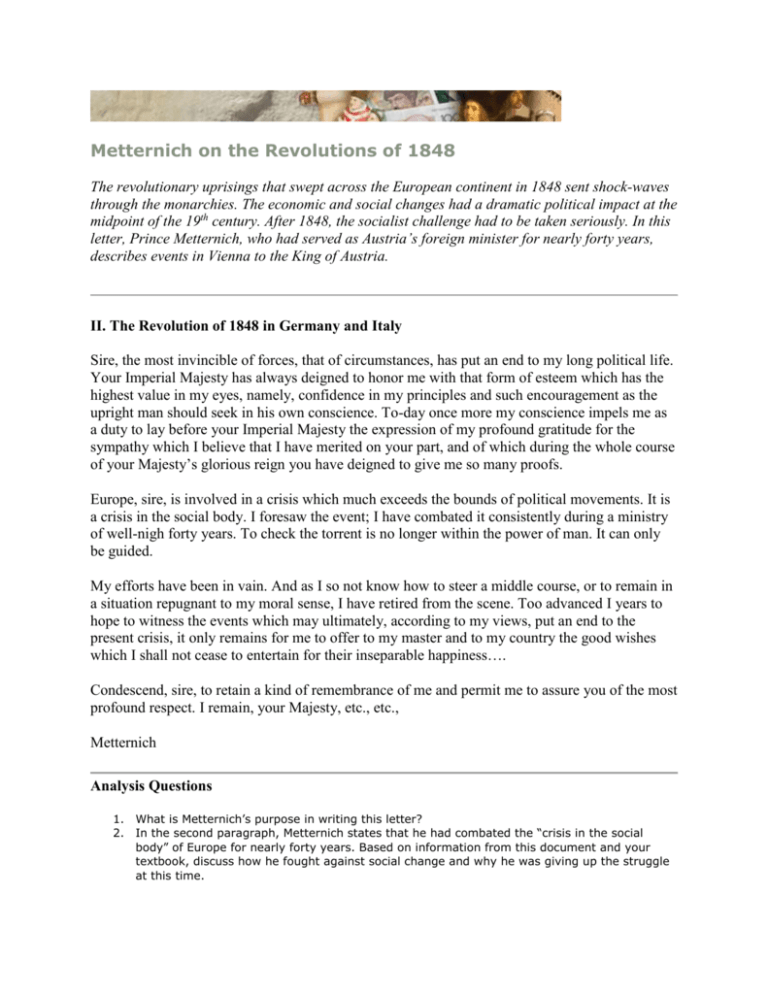
Metternich on the Revolutions of 1848 The revolutionary uprisings that swept across the European continent in 1848 sent shock-waves through the monarchies. The economic and social changes had a dramatic political impact at the midpoint of the 19th century. After 1848, the socialist challenge had to be taken seriously. In this letter, Prince Metternich, who had served as Austria’s foreign minister for nearly forty years, describes events in Vienna to the King of Austria. II. The Revolution of 1848 in Germany and Italy Sire, the most invincible of forces, that of circumstances, has put an end to my long political life. Your Imperial Majesty has always deigned to honor me with that form of esteem which has the highest value in my eyes, namely, confidence in my principles and such encouragement as the upright man should seek in his own conscience. To-day once more my conscience impels me as a duty to lay before your Imperial Majesty the expression of my profound gratitude for the sympathy which I believe that I have merited on your part, and of which during the whole course of your Majesty’s glorious reign you have deigned to give me so many proofs. Europe, sire, is involved in a crisis which much exceeds the bounds of political movements. It is a crisis in the social body. I foresaw the event; I have combated it consistently during a ministry of well-nigh forty years. To check the torrent is no longer within the power of man. It can only be guided. My efforts have been in vain. And as I so not know how to steer a middle course, or to remain in a situation repugnant to my moral sense, I have retired from the scene. Too advanced I years to hope to witness the events which may ultimately, according to my views, put an end to the present crisis, it only remains for me to offer to my master and to my country the good wishes which I shall not cease to entertain for their inseparable happiness…. Condescend, sire, to retain a kind of remembrance of me and permit me to assure you of the most profound respect. I remain, your Majesty, etc., etc., Metternich Analysis Questions 1. What is Metternich’s purpose in writing this letter? 2. In the second paragraph, Metternich states that he had combated the “crisis in the social body” of Europe for nearly forty years. Based on information from this document and your textbook, discuss how he fought against social change and why he was giving up the struggle at this time.
